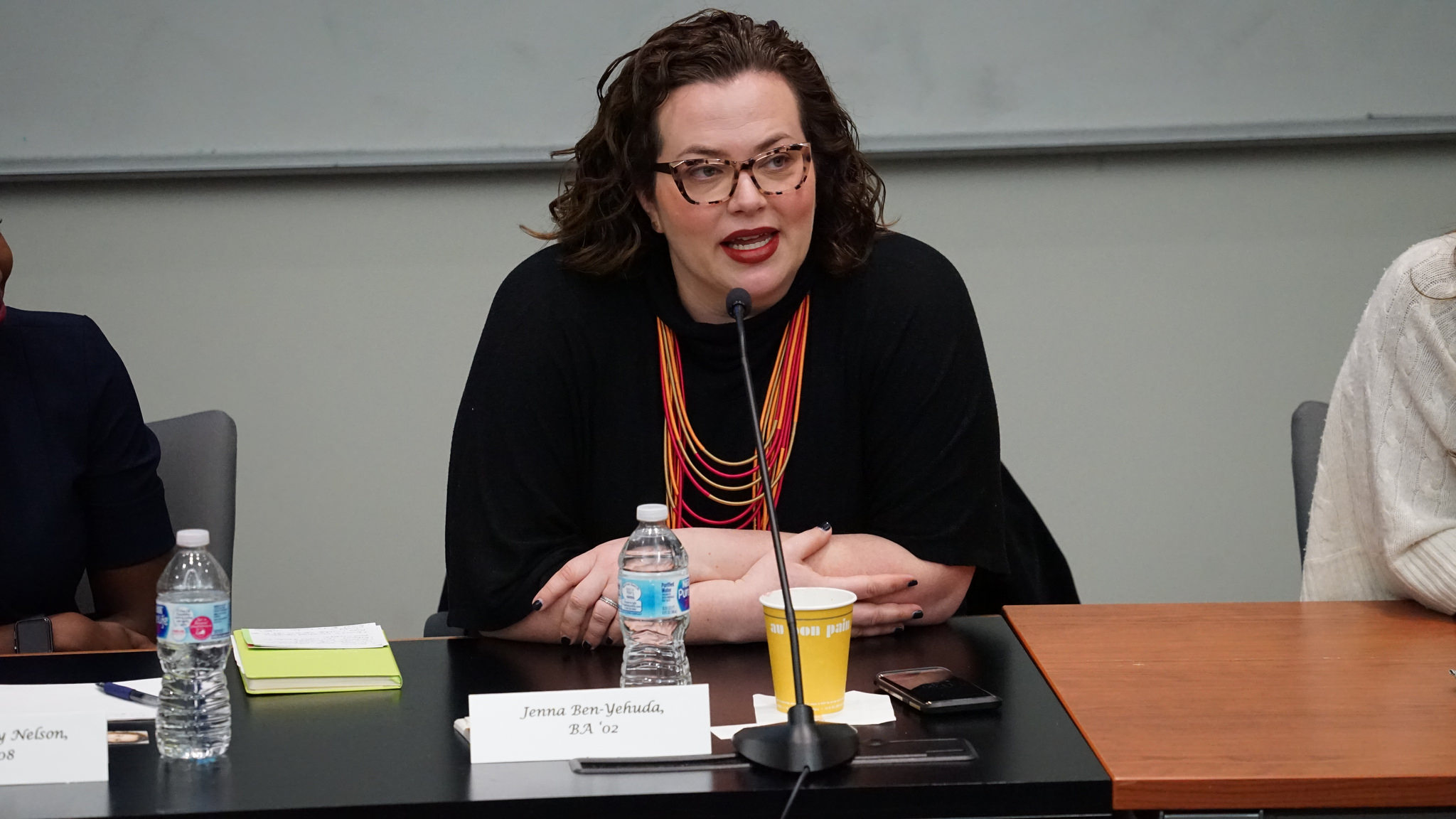
It’s been four months since an open letter to the national security community known as #MeTooNatSec, authored by Elliott School alumna Jenna Ben-Yehuda (BA ‘02) and signed by more than 223 women who work in national security, was published. The letter calls on the national security community to take a comprehensive set of actions to reduce the incidence of sexual harassment and abuse in the workplace. The letter lays out specific recommendations, drawing a path for constructive engagement:
“This is not just a problem in Hollywood, Silicon Valley, newsrooms or Congress. It is everywhere. These abuses are born of imbalances of power and environments that permit such practices while silencing and shaming their survivors. Indeed, in our field, women comprise a small fraction of the senior leadership roles — 30% or fewer in most federal agencies.”
In honor of the International Day of Women, Ben-Yehuda spoke at an Elliott School career panel focused on sexual harassment in the workplace. She described the way a culture of abuse can begin in an environment in which people are spoken over and excluded — sometimes unintentionally — from meetings and the decision-making process. Ben-Yehuda emphasized the importance of having more women in top leadership roles and cited research studies showing that sound policies arise in inclusive environments.
In a recent Foreign Policy feature, Will State Miss its #MeToo Moment?, the article questions whether significant change can come, despite former Secretary of State Rex Tillerson’s implementation of mandatory sexual harassment training, in a “culture in which patriotism and pursuit of the diplomatic mission meant ignoring or downplaying complaints of harassment.”
Asked if the #MeTooNatSec letter would be submitted to the new Secretary of State, Ben-Yehuda responded: “We will continue to work all angles to pursue reform. It is important to ensure there’s continuity on the reform process, and it’s our goal to work with all leadership at the Department.”
Asked how she would rate progress on specific measures to reduce the incidence of sexual harassment or abuse in the workplace, Ben-Yehuda responded, “Some of these reforms take more time to take hold and implement than others. The key is continued forward momentum and an ongoing acknowledgement at all levels both that all employees are entitled to a workplace free from harassment and assault. We’re hopeful we’ll see transparency efforts take hold within the coming months. Transparency is critical to understanding the magnitude of the problem and identifying the best ways to address it.”
Add to the conversation on Twitter at #MeTooNatSec, @jenna_dc, @StateDept, #MeTooMilitary, @WomensFPNetwork.

